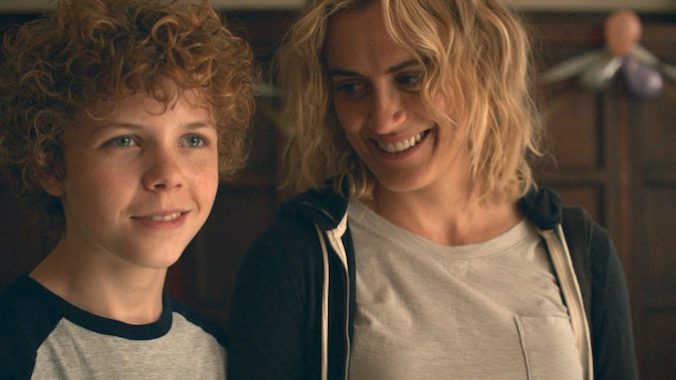Though Overstuffed, Apple TV+’s Dear Edward Is Still a Poignant Exploration of Grief
Photo Courtesy of Apple TV+
Plane crashes are great TV fodder: the great Damon Lindelof mysterybox show Lost on ABC was catapulted by a plane crash on an island with secrets; last year, the country was overtaken with love for Showtime’s Yellowjackets, which follows a girls soccer team stretched to their limits while in survival mode in the wilderness. The latest show to take on all that comes with the tragedy of a plane crash is Dear Edward — but don’t expect any four-legged statues or cannibalism here. The 10 episode Apple TV+ series helmed by Jason Katims is centered on the emotional aftermath of the crash, as the victims’ loved ones deal with their grief and understand how to move on with life without them.
Based on a book of the same name, Dear Edward begins its story with the sole survivor of a cross-country plane crash—a 12-year-old Manhattan kid named Edward (Colin O’Brien)—before branching out to the people the deceased left behind. In some of the many threads throughout the show’s run, Edward relocates from the city to upstate New York to live with his mom’s sister (Taylor Schilling) and husband, a couple who were desperately trying to have their own child and have to activate their parental instincts; an aspiring Congresswoman (Anna Uzele) mourns her late grandmother and hopes to follow in her footsteps and serve her community; a Ghanian man (Idris Debrand) contends with the immigration system in order to bring his orphaned niece back to Africa with him; and a wealthy widow (Connie Britton) unfurls her husband’s secret life in Los Angeles, trying to make sense of their own life together.
-

-

-

-

-

-

-

-

-

-

-

-

-

-

-

-

-

-

-

-

-

-

-

-

-

-

-

-

-

-

-

-

-

-

-

-

-

-

-

-








































